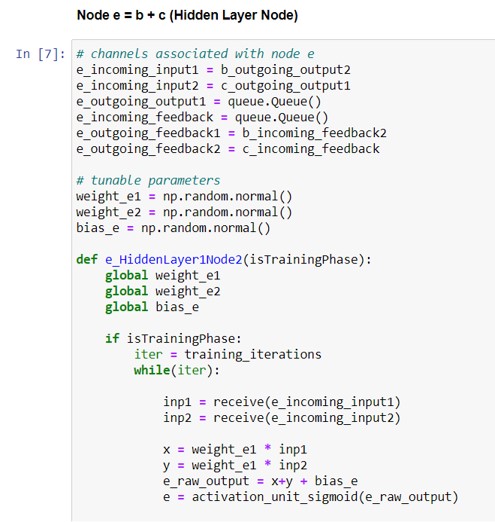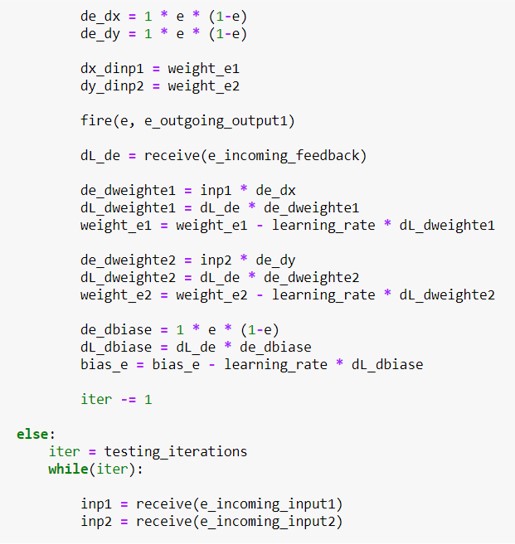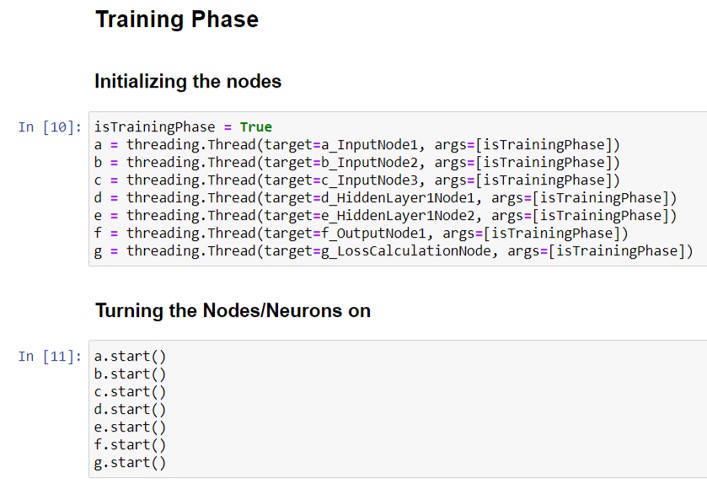
Bioengineering Research
Aria is a final year university student from PES University, Bangalore, India. She joined the mentorship program to focus on bioengineering research which will be helpful for her Master’s application.
Aria is a Computer Science final year undergraduate student. She has experience in programming languages such as Python and is interested to bring her skills to the next level.
University admission result
Scope of the program
Overall structure
During this program, Aria and her mentor explored the nature of backpropogation, the fundamental algorithm behind all modern machine learning. Specifically Aria was interested in whether the brain itself using backprop for learning. In order to pursue this, she implemented an advanced form of biologically-realistic backpropogation in a coded-from-scratch neural network. She then tested different methods of backprop and identified what sort of physiological mechanisms (retrograde transmission, etc) might be necessary.
Learning objectives
- To understand at the level of hand calculation the backprop algorithm implemented in computational graphs.
- To survey the literature on whether the brain’s learning using backprop or a modified form of backprop.
- To code from scratch a small neural network that learned via backprop in a biologically-realistic manner.
What challenges did she face?
- Her skills is in computer science, and as such, delving into neuroscience has proven to be a challenge for her.
- She would like to work with a professor from the US to get a taste of international teaching and to learn in-depth in bioengineering research.
How did our program help her?
- With the help from the professor, she implemented an advanced form of biologically-realistic backpropagation in a coded-from-scratch neural network.
- The professor will be happy to write a letter of recommendation for her masters’ application.
Student’s Testimonial
I worked on a research line in neuroscience that focused on studying the degree to which the brain resembled the processes within deep neural networks, as a part of my Mentorship Program. The target was to develop a biologically realistic deep neural network from scratch. The process we followed to approach this was primarily through Hinton’s paper Backpropagation and the Brain.
Branching out from this paper, we looked into good work written by other authors on the same lines that were cited in the primary paper. Further, I went on to implement the model that was proposed in the paper ground up from scratch, to keep it simple and understandable.
Coding from scratch proved to be more time-consuming and challenging, however, it provided a greater understanding of the mechanisms that were behind the process and fine internal modifications could be made at any point of time since it is not encapsulated within predefined library functions that cannot be fine-tuned beyond a point.
By the close of the mentorship period, I was able to code a standard biologically realistic deep neural network from scratch and also start looking into advanced forms and explore the intricacies that came along with it. I thoroughly enjoyed the entire mentorship program.
My mentor was great to work with and I found the work very rigorous, interesting, and engaging. I was able to learn plenty.
Aria Chaloli
Matched professor in bioengineering research:
A research assistant professor at Tufts University and previously a postdoctoral researcher at Columbia University. For his research work, he was included in the Forbes 30 Under 30 in Science.
Recommendation letter
Based on your knowledge of this student, would you recommend this student to selective universities?
“Yes – due to her open interest, her ability to investigate scientific literature itself, and also her programming ability.
Aria was an intelligent and driven student who was fascinated by the brain and machine learning. What I like the most about her is her diligence in terms of creating the network from scratch in a very understandable way.“
Research Assistant Professor, Tufts University
Excerpts from the student’s work



